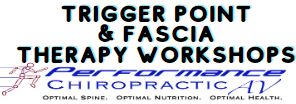Massage as Part of Your FMS Treatment Plan
Massage for Fibromyalgia
Therapeutic massage has been found to offer welcome relief to many who suffer from the chronic pain and fatigue associated with Fibromyalgia Syndrome (FMS). Some of the benefits reported by fibromyalgia patients receiving regular massage include reduced muscle pain and stiffness, decreases stress and anxiety, more restful sleep, increased energy, and a more positive outlook on life.
Understanding Fibromyalgia
Fibromyalgia Syndrome (FMS) is a chronic condition characterized by widespread muscle pain and stiffness, and tenderness at specific body sites. The pain and extreme fatigue associated with FMS can be debilitating. As a syndrome, other symptoms often occur with it; for example, almost all people with FMS will suffer from disturbed sleep. FMS has also been called fibrositis and fibromyositis.
Related symptoms may also include irritable bowel syndrome (diarrhea and/or constipation with no traceable causes), Raynaud’s phenomenon (white and cold hands), severe headaches, Sicca syndrome (dry eyes and/or mouth), and osteoarthritis. Other common physical symptoms include bruising easily, night cramps, “restless legs” syndrome, teeth grinding, sensitive bladder, mouth ulcers, sleep apnea, itchy skin, and hair loss. A variety of problems such as panic attacks, mood swings, irritability, short term memory loss, and difficulty concentrating may also accompany FMS. Syptoms seem to worsen in cold or humid weather.
It is not surprising that anxiety and depression are often associated with FMS. Depression is generally thought to occur as a result of living with the syndrome, and not as part of the disease itself.
FMS is not degenerative, and not deforming. The results of x-rays, CT scans, MRI, and blood studies of people with FMS are typically normal. It has been reported that 70-90% of those diagnosed with FMS are women ranging in age from 20 to 50 years, although it also affects people from teenagers to centenarians, including males. Western medicine has developed some strategies for diagnosing and treating the symptoms of FMS, yet the actual cause of the disease is still undetermined.
Fibromyalgia Syndrome differs from common muscle soreness associated with exercise or aging. With FMS the pain seems more permanent and widespread throughout the body. In an official diagnosis, a history of widespread and severe muscle pain is confirmed with symptoms lasting at least three months. In addition, other symptoms such as those mentioned previously, are taken into account by the diagnosing physician.
Massage as Part of Your FMS Treatment Plan
There is no known cure for FMS. Treatment approaches generally involve a combination of therapies to relieve symptoms. These may include medications to relieve muscle pain and to improve mood, moderate exercise, and psychological counseling.
Therapeutic massage is a natural remedy ideal for treating some of the major symptoms of FMS and is backed by sound research studies. The benefits of therapeutic massage for FMS sufferers include:
- Relief for sore and stiff muscles
- Reduction of stress and anxiety
- More restful sleep
- More positive outlook
Stress Reduction- Restful Sleep
The symptoms of FMS are compounded by the negative effects of everyday stress. The body’s self-healing mechanisms become increasingly ineffective as they try to cope with stress overload. Anxiety and disturbed sleep further rob the body of healing rest. Massage, which has been used for centuries for general relaxation, offers a powerful remedy for stress. Studies Research studies confirm that massage helps calm the nervous system, reduces anxiety, and improves sleep. Massage intended for relaxation is slower paced, repetitive, soothing, and generally avoids causing discomfort and pain. The Western (Swedish) massage techniques of effleurage (sliding/gliding) and petrissage (pressing/kneading) performed sensitively and with light to moderate pressure are particularly soothing. Shiatsu, a Japanese form of massage therapy directed at acupressure points, offers a different approach and has been reported by some to be deeply relaxing.
Pain Relief
Therapeutic massage can also help reduce generalized and muscular aches and pains. The effects of massage that contribute to pain relief are relaxation or tense, tender muscles, enhanced pliability of tissues, and reduction of hyper-irritable spots called trigger points that refer pain to other areas of the body. Alleviation of pain is also thought to be related to an improvement in restorative sleep after massage.
Much of the pain experienced by FMS patients seems to occur where muscles attach to tendons or bone, especially when the muscles are stretched. Gentle stretching during massage and trigger point therapy can enhance range of motion for less painful movement overall.
Traditional Western (Swedish) massage is particularly good for reducing muscular tension. Most massage therapist use an eclectic approach to address muscular pain, including trigger point therapy (neuromuscular therapy), myofascial massage, and other techniques.
Improved Outlook
Studies have shown that massage helps to increase general feelings of well-being for many people in treatment for a variety of ailments. Massage also seems to improve the outlook on life for people with depression. The alleviation of symptoms alone provides comfort and hope for those living with FMS.
A Final Note
The symptoms of FMS can vary in intensity from mild to severe. Some find massage therapeutic even during severe flare-ups. Others wait until a flare-up passage before receiving massage. Discuss your individual situation with your health care provider and your massage therapist to decide which is best for you.
References:
Liptan, G. Figuring out Fibromyalgia:
Current Science and the Most Effective Treatments.
Visceral Books, 2011
Yuan, SL, Matsutani, LA, and Marques, AP
Effectiveness of different styles of massage therapy in Fibromyalgia: a meta-analysis and systematic review.
Manual Therapy, Oct 5 2014.
This brochure is intended for information only. Contact your physician for diagnosis of medical conditions, and for advice on whether massage might be beneficial for you.




FOLLOW US!